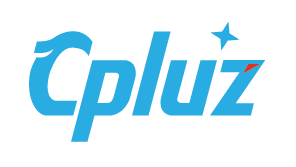**Title: Understanding Different Types of Website Security Measures: A Comprehensive Guide for Businesses**
**Introduction**
Welcome to Cpluz, your trusted partner in design, printing, and digital solutions since 1993. In today’s interconnected world, website security is paramount for businesses of all sizes. This article aims to provide a comprehensive guide on various types of website security measures, ensuring your online presence is secure and robust.
**Headline 1: SSL Certificates: The Foundation of Website Security**
Secure Sockets Layer (SSL) certificates are essential for establishing a secure, encrypted connection between your website and its visitors. SSL certificates authenticate your website’s identity and encrypt sensitive data, such as login credentials and credit card information.
**Headline 2: Firewalls: The First Line of Defense**
Firewalls act as a barrier between your internal network and the internet, preventing unauthorized access. They can be hardware-based, software-based, or a combination of both. Firewalls monitor and control incoming and outgoing network traffic based on predetermined security rules.
**Headline 3: Intrusion Detection Systems (IDS) and Prevention Systems (IPS)**
IDS and IPS are security solutions designed to detect and prevent cyber attacks. IDS monitors network traffic for suspicious activities, while IPS can also block such activities before they cause harm.
**Headline 4: Antivirus and Malware Protection**
Antivirus software is designed to detect, quarantine, and remove malicious software from your website. Regular scans and updates are crucial to ensure your website remains protected against the latest threats.
**Headline 5: Two-Factor Authentication (2FA)**
Two-Factor Authentication adds an extra layer of security to your login process by requiring users to provide two forms of identification. This can significantly reduce the risk of unauthorized access.
**Headline 6: Regular Backups and Disaster Recovery**
Regular backups ensure that your website data is safe in case of a breach or technical issue. A disaster recovery plan outlines the steps to restore your website to its pre-incident state, minimizing downtime and data loss.
**Why Choose Cpluz for Your Website Security Needs?**
At Cpluz, we understand the importance of building positive connections between brands and human emotion. Our expertise in website security allows us to protect your digital assets, ensuring a secure and seamless user experience that fosters trust and engagement.
**Conclusion**
In the ever-evolving digital landscape, website security is no longer a luxury but a necessity. By implementing these security measures, you are safeguarding your business, customer data, and reputation. Contact us at info@cpluz.com to learn more about how we can help secure your online presence.
**Meta Description:**
Discover the different types of website security measures, including SSL certificates, firewalls, antivirus, and more. Learn how Cpluz can help secure your online presence and foster trust with your audience. Contact us today!

